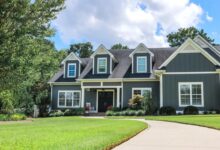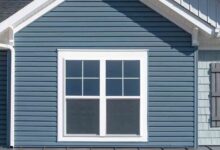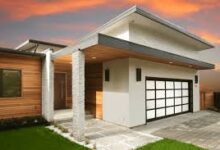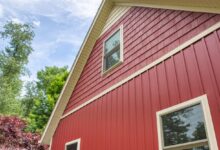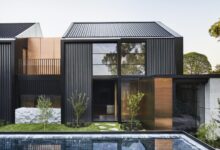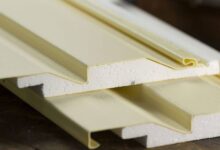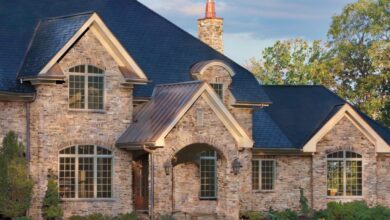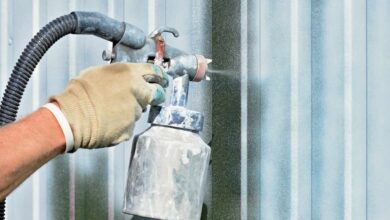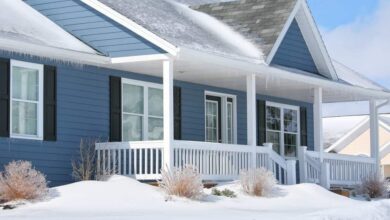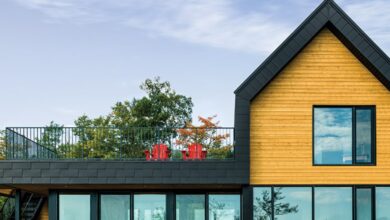Composite Siding vs Vinyl Siding Comparison
When it comes to exterior cladding for your home, choosing the right siding material is crucial for both aesthetic appeal and long-term durability. Composite siding and vinyl siding are two of the most popular choices on the market, each offering unique advantages for homeowners. The challenge lies in understanding the key differences between the two, including their benefits, drawbacks, pricing, and overall performance in different environments. This article will provide a comprehensive comparison of composite siding versus vinyl siding, helping you decide which is the best option for your home.
Understanding Composite Siding

Composite siding is crafted from a blend of different materials, typically wood fibers, resin, and other compounds, which are compressed and molded into planks or panels. This type of siding is designed to offer a high level of durability, weather resistance, and aesthetic appeal, often mimicking the appearance of wood without the drawbacks of natural wood.
Benefits of Composite Siding
One of the primary benefits of composite siding is its exceptional durability. Unlike wood, composite siding is resistant to rot, termites, and decay, making it a solid choice for homeowners who live in regions with high humidity or pest concerns. Additionally, composite materials are far more resistant to weather damage, such as warping, cracking, or fading from prolonged exposure to the sun.
Another notable benefit of composite siding is its low maintenance. Traditional wood siding requires regular painting or staining to maintain its appearance and protect it from the elements. In contrast, composite siding generally comes pre-painted and retains its color for years without the need for frequent touch-ups. This makes it a great choice for homeowners who prefer a hands-off maintenance routine.
Composite siding is also more insulative compared to vinyl. The material helps to reduce thermal conductivity, meaning your home will be better insulated from outside temperatures. This can help lower energy bills by reducing the need for heating and cooling, making composite siding a more energy-efficient option in the long run.
Moreover, composite siding provides a more natural appearance. Many composite materials are designed to mimic the look of natural wood, with intricate textures that can be customized to match the aesthetic of your home. This gives composite siding a more high-end appearance compared to vinyl, which can sometimes look artificial or plasticky.
Leading Products in Composite Siding
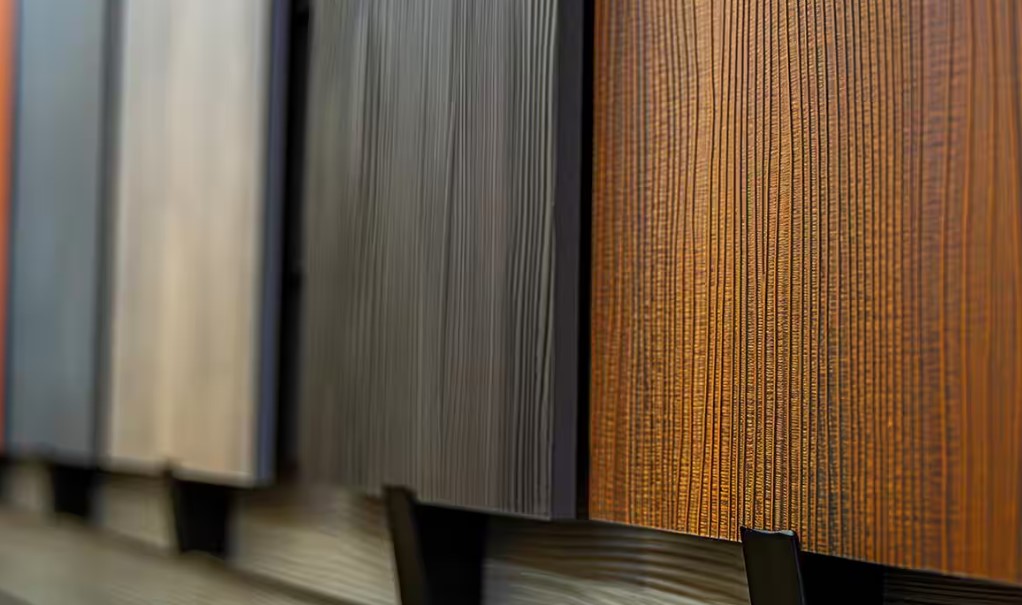
James Hardie® HardiePlank® Lap Siding
James Hardie is one of the most respected names in composite siding, and their HardiePlank® Lap Siding is a popular choice for homeowners. HardiePlank® is made from fiber cement, a composite material that combines the strength of cement with the aesthetic flexibility of wood. This siding option is particularly resistant to fire, making it a great choice for areas prone to wildfires.
Pros:
- Durability: HardiePlank® is highly resistant to extreme weather conditions, including high winds, rain, and snow. It is also impervious to insects like termites.
- Low Maintenance: It retains its color for years, and unlike wood, it does not need regular painting.
- Customizable: Available in a wide range of colors and textures, including traditional wood grains and smooth finishes, allowing you to choose the ideal look for your home.
Cons:
- Higher Upfront Cost: While it is a durable investment, the cost of James Hardie® products is generally higher than some other siding options.
- Heavy Installation: Fiber cement siding is heavier than vinyl, so professional installation is recommended, which can increase labor costs.
Price: James Hardie® HardiePlank® typically costs between $2 to $4 per square foot, depending on the finish and whether you choose to have it professionally installed.
Where to Buy: You can purchase James Hardie® HardiePlank® Lap Siding through their official website or find local distributors in your area.
LP® SmartSide® Engineered Wood Siding
LP® SmartSide® is another leading brand in composite siding that blends wood strands with resins to create a durable, eco-friendly material. It is often seen as a more affordable alternative to fiber cement siding, while still offering many of the same benefits.
Pros:
- Eco-Friendly: Made from renewable resources and treated to resist decay, SmartSide® is a more environmentally friendly option.
- Easy Installation: Lighter and easier to work with than fiber cement, LP® SmartSide® can reduce installation time and costs.
- Wood-Like Aesthetic: Offers the appearance of natural wood but with enhanced durability.
Cons:
- Repainting Needed: While the siding is pre-finished, it may require repainting every 5-7 years, especially in areas with high sun exposure.
- Susceptible to Damage: While it resists termites and rot, it may not perform as well in areas with extreme moisture or constant wet conditions.
Price: Prices for LP® SmartSide® generally range from $1.50 to $3.50 per square foot, depending on the product finish and any added insulation.
Where to Buy: You can purchase LP® SmartSide® Engineered Wood Siding directly from their website or find it through major home improvement retailers.
Allura® Fiber Cement Siding
For homeowners seeking a high-quality, long-lasting siding solution, Allura® Fiber Cement Siding provides excellent performance. This product offers superior resistance to fire, moisture, and impact, making it a solid choice for homes in varying climates.
Pros:
- Weather and Fire Resistant: Allura® is highly resistant to moisture and fire, making it an ideal option for homes located in wildfire-prone or humid areas.
- Variety of Textures: The product is available in a range of textures, including smooth, cedar, and stucco, to match different architectural styles.
- Minimal Maintenance: Similar to James Hardie®, Allura® requires very little maintenance, making it a low-hassle option for homeowners.
Cons:
- Installation Complexity: Like other fiber cement siding products, Allura® is heavy and may require professional installation, which can add to the overall cost.
- Upfront Price: The initial investment for Allura® can be higher than vinyl options, though the long-term benefits often outweigh the costs.
Price: Prices for Allura® Fiber Cement Siding typically range from $3 to $6 per square foot.
Where to Buy: Allura® Fiber Cement Siding can be purchased directly through their website or from authorized dealers.
Understanding Vinyl Siding
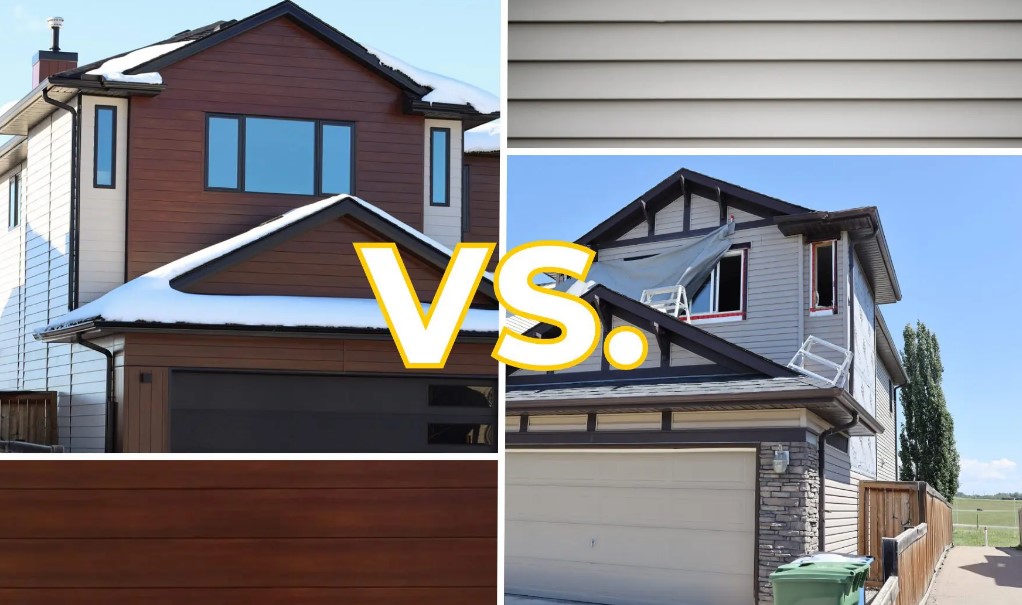
Vinyl siding is a synthetic material made primarily from PVC (polyvinyl chloride) that is designed to be lightweight, durable, and affordable. Vinyl siding is available in a wide range of colors and styles, and its versatility makes it a popular choice for many homeowners.
Benefits of Vinyl Siding
Vinyl siding is often favored for its cost-effectiveness and ease of installation. It is one of the most affordable siding materials on the market, making it an excellent option for homeowners on a budget. Vinyl siding is also low maintenance, requiring only occasional cleaning to maintain its appearance. Since it does not absorb moisture like wood, it is resistant to mold, mildew, and rot.
One of the standout features of vinyl siding is its variety of design options. Vinyl is available in a broad spectrum of colors, and modern manufacturing processes have made it possible to achieve a more authentic, wood-like appearance. This means that homeowners can choose a siding that complements the architectural style of their home without breaking the bank.
Vinyl siding can also be insulated, which adds an extra layer of thermal protection to your home. Insulated vinyl options are designed to reduce heat transfer and improve energy efficiency, helping to lower heating and cooling costs.
Leading Products in Vinyl Siding
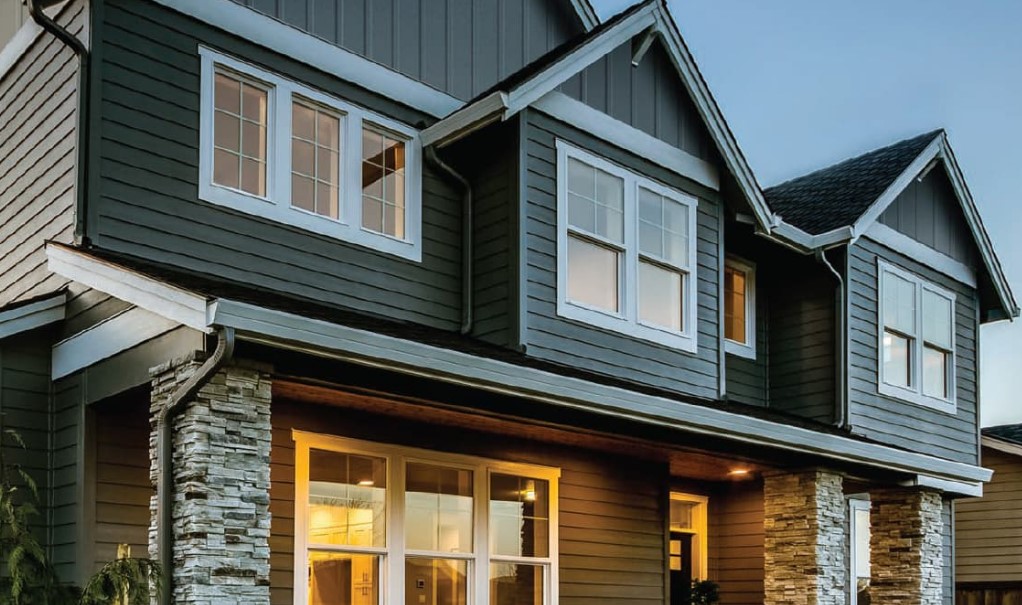
CertainTeed® Vinyl Siding
CertainTeed® is a trusted name in the vinyl siding industry, known for its range of high-quality, durable products. CertainTeed® Vinyl Siding offers a variety of styles, including traditional lap siding, shakes, and scallops, making it a versatile choice for any home.
Pros:
- Durable: CertainTeed® vinyl siding is engineered to withstand the harshest weather conditions, including high winds and extreme temperatures.
- Wide Selection of Colors: Available in numerous colors and finishes to suit every taste.
- Energy-Efficient: Insulated options are available that help reduce energy consumption.
Cons:
- Fading: While CertainTeed® vinyl siding is durable, it may fade over time with prolonged exposure to the sun.
- Cracking: In extremely cold climates, vinyl can become brittle and prone to cracking.
Price: CertainTeed® vinyl siding ranges from $2 to $4 per square foot, depending on the finish and style.
Where to Buy: Visit CertainTeed® or home improvement stores for purchase options.
Composite Siding vs Vinyl Siding: Which One Is Right for You?
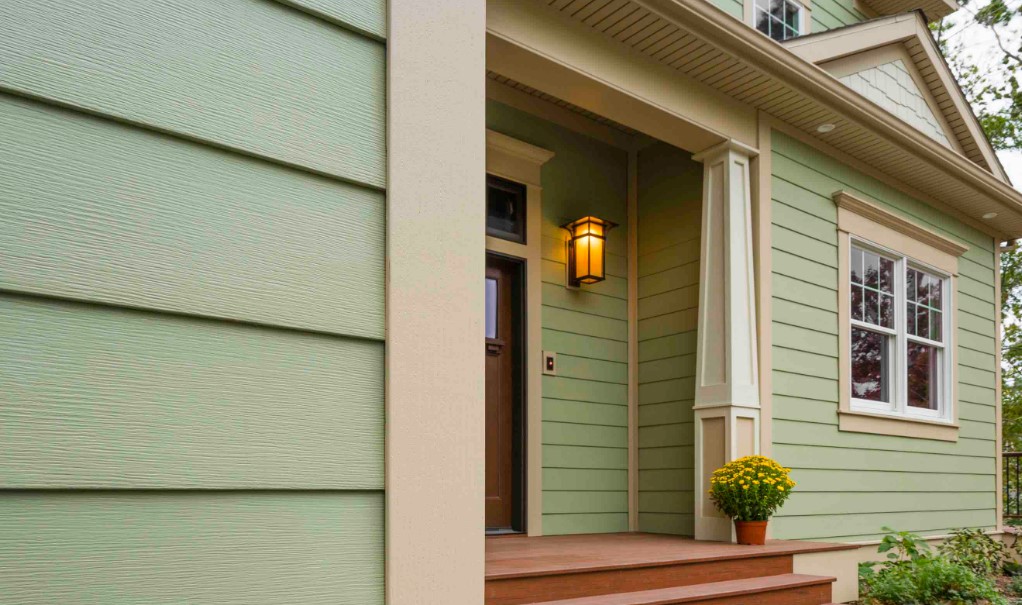
The decision between composite siding and vinyl siding depends on several factors, such as aesthetic preferences, budget, climate, and long-term maintenance.
- Durability: Composite siding generally offers better durability against extreme weather, pests, and rot. It tends to last longer than vinyl, making it a better investment in the long run.
- Appearance: Composite siding typically offers a more high-end, natural appearance, especially when compared to vinyl. If you want the appearance of wood without the maintenance, composite siding is a great choice.
- Cost: Vinyl siding is the more affordable option upfront, but it may require more frequent replacement or maintenance. Composite siding has a higher initial cost but can provide better long-term value.
How to Buy Composite and Vinyl Siding
Choosing the right siding for your home is a significant investment, and understanding how to buy composite and vinyl siding is crucial to ensuring you get the best deal for your needs. Whether you’re remodeling or building a new home, knowing where to purchase these materials, what factors to consider, and how to make the purchase can help streamline the process and prevent costly mistakes.
Where to Buy Composite Siding
1. Manufacturer Websites
One of the most reliable places to purchase composite siding is directly from the manufacturers. Brands like James Hardie, LP SmartSide, and Allura offer their products on their official websites. Buying directly from the manufacturer ensures you’re getting authentic products, and in some cases, you may also have access to exclusive finishes, colors, or special promotions. Manufacturers’ websites also typically have resources, such as guides and warranties, that can help with product selection and installation.
2. Home Improvement Stores
National home improvement retailers like Home Depot, Lowe’s, and Menards often carry composite siding products from leading brands like James Hardie and LP SmartSide. These stores may also offer delivery services, making it convenient to have your siding materials brought directly to your home. Additionally, you can sometimes find special discounts or promotions in these stores, especially during seasonal sales.
3. Local Building Supply Stores
If you prefer to shop locally, many regional building supply stores carry composite siding from top brands. These stores may also offer personalized service and product recommendations based on your area’s climate and building codes. Local suppliers can often give you a more tailored experience and answer any technical questions you might have.
4. Professional Installers and Contractors
Some professional siding installers or contractors have partnerships with suppliers and can offer composite siding at discounted rates. When you hire a contractor for installation, they may help you select the right siding material and purchase it at a competitive price.
Where to Buy Vinyl Siding
1. Big-Box Retailers
Vinyl siding is widely available at large home improvement stores like Home Depot, Lowe’s, and Ace Hardware. These stores carry a variety of vinyl siding brands, including CertainTeed, Mastic, and Royal Building Products, offering different styles, colors, and finishes. These retailers are often the most convenient for homeowners looking for immediate availability and easy access.
2. Online Retailers
For those who prefer shopping online, retailers like Amazon, Wayfair, and Build.com offer a broad selection of vinyl siding. Purchasing online may be ideal for homeowners who know exactly what they want, as they can compare prices and delivery options from the comfort of their home. However, when buying online, be mindful of shipping fees, and ensure that returns and exchanges are straightforward if the product doesn’t meet expectations.
3. Local Vinyl Siding Suppliers
Many specialized suppliers offer a variety of vinyl siding products, often with a focus on energy-efficient and insulated vinyl options. These businesses may also provide advice on installation and customization. If you have a contractor or builder, they may also have recommendations for trusted vinyl siding suppliers in your area.
Factors to Consider When Buying Siding
When purchasing either composite or vinyl siding, there are several factors to keep in mind:
Price
Composite siding generally costs more upfront than vinyl, but it may offer better long-term value. Consider your budget and decide whether the investment in composite siding is worth it for its longevity and reduced maintenance.
Climate
If you live in an area with extreme temperatures, moisture, or pests, composite siding may be a better option due to its durability and resistance to the elements. Vinyl siding, while durable, can sometimes become brittle in cold climates.
Installation
Both types of siding are relatively easy to install, but composite siding may require professional installation due to its weight and complexity, particularly with fiber cement options. Vinyl siding can often be installed by homeowners with DIY experience, although professional installation is still recommended for optimal results.
Warranty
Always check the warranty offered by the manufacturer. Composite siding typically comes with longer warranties (20 years or more) compared to vinyl siding, which may indicate higher durability.
Frequently Asked Questions
Q1: How long does composite siding last compared to vinyl siding?
A1: Composite siding typically lasts 30-50 years, while vinyl siding lasts about 20-40 years. Composite generally offers better longevity and durability in extreme conditions.
Q2: Is composite siding worth the higher cost?
A2: Yes, if you are looking for a low-maintenance, long-lasting solution that offers superior durability and energy efficiency, composite siding is a worthwhile investment.
Q3: Can I install composite or vinyl siding myself?
A3: While vinyl siding can be installed by experienced DIYers, composite siding, especially fiber cement products, is heavy and may require professional installation due to its complexity.
